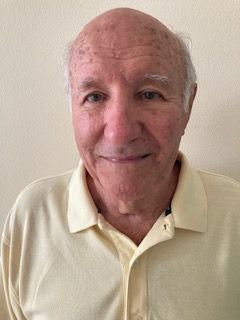About Thomas Christian
Dr. Thomas F. Christian served as the founding State Director of the Community Dispute Resolution Centers Program for the New York State Unified Court System from 1981 through 1996, establishing the foundation for what became a nationally recognized model of court-connected community mediation. Under his leadership, New York became the first state to create a comprehensive, statewide network of community dispute resolution centers serving all 62 counties.
Christian brought a unique background in criminal justice and community-based alternatives to his role. He began his career as a probation officer in Minnesota, working in juvenile detention and correctional facilities before deciding to focus on community-based interventions. Using LEA (Law Enforcement Assistance Administration) funding, he earned both a master's degree and doctorate from Michigan State University's School of Criminal Justice. In 1979, he was voted Corrections Professional of the Year by the Minnesota Corrections Association.
Prior to joining New York's court system, Christian directed the Portland House, an innovative alternative-to-incarceration program, and later worked with the National Center for State Courts in Atlanta, developing programs across twelve southern states. His work came to the attention of Chief Judge Lawrence H. Cook, who recruited him to New York after Christian presented on mediation and alternative dispute resolution to the Center's board of directors.
As State Director, Christian established the foundational principles that continue to guide the CDRC program today. Working initially with Mark Collins, he developed comprehensive training standards requiring at least 25 hours of mediator training, created sophisticated data collection systems to track case outcomes and demographics, and fostered a collaborative partnership model between the state office and individual centers. Christian and his small team personally visited every center annually, maintaining the balance between quality assurance and local program autonomy that became a hallmark of New York's approach.
Under Christian's guidance, the program expanded from 15 centers in the first year to coverage of all 62 counties by the decade's end. He established the legislative framework for sustainable funding, created uniform reporting systems, and helped centers develop innovative programs including victim-offender mediation and specialized court referral processes. His commitment to partnership rather than top-down management allowed centers to develop programming that met their specific community needs while maintaining statewide standards.
Christian's work gained national attention, with cases he mediated featured on CBS's 48 Hours, HBO, and National Public Radio. Notable mediations included a victim-offender case between Reverend Al Sharpton and his attacker, demonstrating the program's capacity to handle high-profile conflicts.
In 1997, Christian received the Peace Builder Award from the New York State Dispute Resolution Association. He has taught at the University of Minnesota and Mankato State University, lectured widely, and written extensively in criminal justice. In 1999, he published "Conflict Management and Conflict Resolution in Corrections" through the American Correctional Association.
Since retiring from the court system, Christian has continued his work in alternative dispute resolution as a mediator, arbitrator, trainer, and consultant. He currently resides in Tucson, Arizona, where he operates as a criminal justice specialist, maintaining his commitment to community-based conflict resolution..

